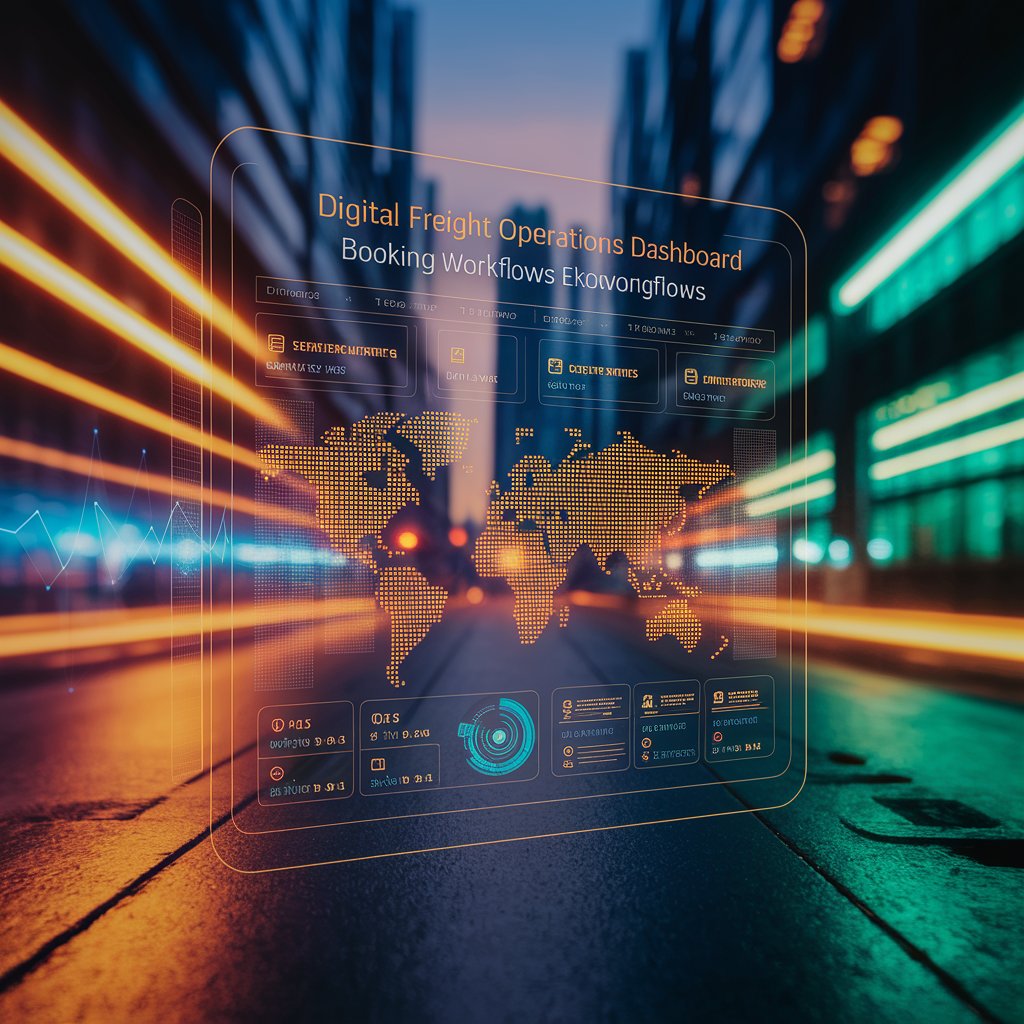Digital Freight Operations: Transforming Logistics for the Modern Era

Introduction
This is where digital freight operations redefine logistics. By embracing technology, automation, and integrated platforms, logistics providers can eliminate inefficiencies, improve decision-making, and deliver a seamless experience for both customers and partners.
What Are Digital Freight Operations?
Digital freight operations are the end-to-end logistics processes powered by digital platforms, AI, and cloud technologies. They transform quoting, booking, tracking, compliance, and billing into automated, connected, and transparent workflows.
Instead of siloed systems, digital freight operations unify data across transportation, warehousing, and customer communication into a single source of truth.

Key Features
- Automated Workflows: Digital tools for quoting, booking, and document generation.
- Real-Time Visibility: GPS and IoT tracking across multimodal shipments.
- Integrated Platforms: TMS, WMS, ERP, and CRM connected into one ecosystem.
- Data Analytics: Performance dashboards and predictive insights.
- Customer Portals: Branded interfaces for client visibility and control.
Benefits for Logistics Providers
- Efficiency Gains: Reduce manual labor and streamline operations.
- Cost Savings: Eliminate errors, delays, and hidden operational costs.
- Scalability: Support higher shipment volumes without added overhead.
- Customer Experience: Provide transparency and faster service.
- Sustainability: Cut down on paper and optimize resource utilization.

Real-World Applications
- Freight Forwarders: Manage quoting, bookings, and compliance digitally.
- Carriers: Optimize fleet utilization with real-time data.
- 3PL Providers: Provide clients with digital dashboards for visibility.
- E-commerce Logistics: Automate fulfillment, returns, and last-mile updates.
- Global Shippers: Unify global operations across different regions.
The Future of Digital Freight Operations
The future of digital freight operations will integrate AI, blockchain, and digital twins. AI will optimize operations through predictive insights, blockchain will secure contracts and compliance records, and digital twins will simulate logistics networks for stress testing. This evolution will lead to self-orchestrating supply chains, where digital freight operations continuously adapt in real time.

Conclusion
Digital freight operations are transforming logistics by connecting people, processes, and data into one seamless digital ecosystem. With automation, real-time visibility, and analytics-driven insights, they reduce costs while improving service and efficiency. For logistics providers competing globally, adopting digital freight workflows is not just an upgrade—it is the foundation for future-ready supply chains.
